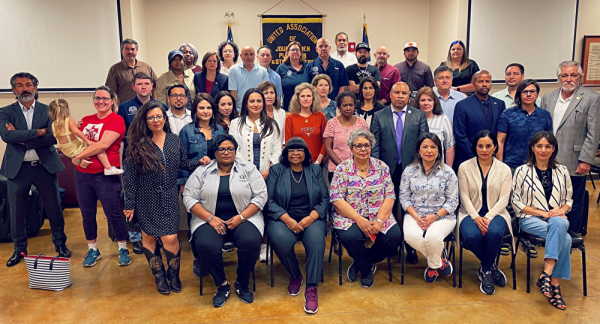
Texas Governor Greg Abbott (R) and House Speaker Dade Phelan (R) have ordered the arrest of dozens of Democratic state lawmakers who took to Washington, DC, last month in an effort to block the Texas House of Representatives from reaching quorum to vote on a variety of items, including a GOP’s voting reform bill that has passed in the Texas Senate.
On Sunday, Texas State District Judge Brad Urrutia (D) granted a temporary restraining order to fugitive House Democrats, effectively blocking both Abbott and Phelan from “detaining, confining or otherwise restricting” the lawmakers’ movement within the state for 14 days.
The order, which prevents the issuance of warrants for their confinement during the period, may be extended by the judge.
“The purpose of the hearing will be to determine whether the temporary restraining order should be made a temporary injunction pending a full trial on the merits,” the court filing details.
Urrutia’s decision comes in response to a petition in which 19 House Democrats argued they would face “imminent and irreparable injury” from Abbott and Phelan’s “interpretation and application of the Texas Constitution and the Rules of the House of Representatives of the State of Texas.”
“[T]he Speaker thinks he can wave his hand and have his political opponents rounded up and arrested. We’re watching a major political party backslide in real time from fair representation, the rule of law, and democracy itself,” Texas Rep. Jasmine Crockett (D), one of the 19 plaintiffs, told the Texas Tribune.
However, Republican lawmakers in the state have argued that Democrats can and should be arrested, according to Texas House Rules.
Per Rule 5, Section 8, when a call to the House takes place, the doors of the legislative chamber will be locked, and no lawmaker will be able to leave until their names are recorded.
Over the weekend, at least 26 Texas House Democrats pledged to remain in the nation’s capital, despite the Saturday kickoff of the Texas State Legislature’s second special legislative session.
While the Texas House failed to obtain a quorum for the third time this year, enough members of the Texas Senate were present for the chamber to conduct business. Unlike the Texas House, the Texas Senate has already been able to vote on, and pass, the GOP’s controversial voting reform bill.
The legislation also calls for new ID requirements for mail-in voting, added protections for partisan poll workers and the ban of 24-hour voting locations, which were set up to assist those who are working during the usual hours of polling.
Sourse: sputniknews.com






